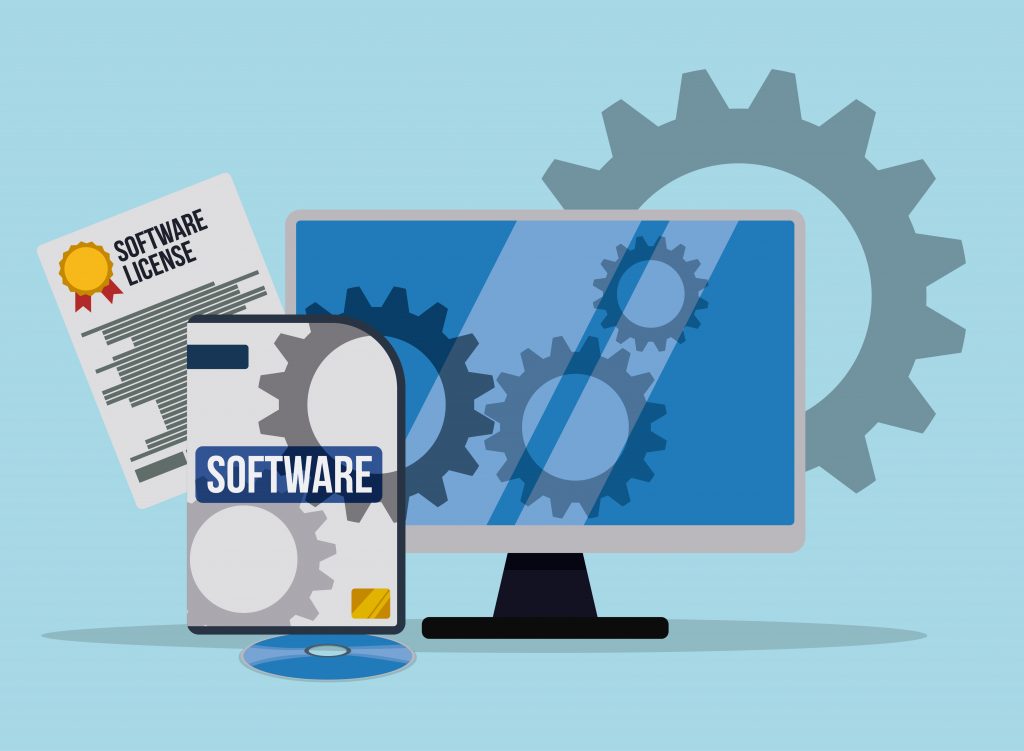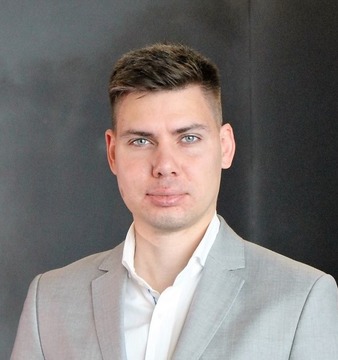“By pursuing the case in the framework of the economic process, Microsoft changed the standard of the presumption of innocence, which applies in the criminal process, to the presumption of guilt.”
 In June 2019, five-years of legal proceedings between Microsoft and Zhytomyrgas PJSC in the Ukrainian courts came to an end. The parties began their battle in the context of criminal proceedings and ended the dispute in the economic court. Microsoft ultimately was successful.
In June 2019, five-years of legal proceedings between Microsoft and Zhytomyrgas PJSC in the Ukrainian courts came to an end. The parties began their battle in the context of criminal proceedings and ended the dispute in the economic court. Microsoft ultimately was successful.
Ukraine has been among the countries on the U.S. Special 301 Report, prepared by the Office of the U.S. Trade Representative, for years due to its high rate of copyright violations. Ukrainian citizens, government agencies and enterprises are no exceptions.
At the same time, Ukraine ranks second in Eastern Europe in the number of software developers and number one in the world in the number of developers per 1,000 inhabitants.
Search and Seizure
Microsoft opened an office in Ukraine in 2003. According to BSA Global Software, 80% of software in Ukraine is pirated. Experts estimate the annual loss for rights holders at $108 million. According to Microsoft, the corporation’s losses for unlicensed software in Ukraine have already exceeded $2 billion.
Zhytomyrgas PJSC is an enterprise engaged in the distribution, transportation, and supply of gas in most districts and cities in the Zhytomyr region of Ukraine. It is 100% owned by Ukraine’s State Committee on Oil and Gas.
Legal proceedings involving copyright infringement in Ukraine are almost always initiated by the copyright holder. To do this, the rights holder must contact the law enforcement authorities with a statement of copyright infringement. The police then initiate criminal proceedings and, after receiving a decision of the investigating judge to conduct a search, execute a search during which computer equipment and other equipment is seized, which is turned over for examination.
In April 2014, police searched the Zhytomyrgas office. During the search they discovered computer equipment in which copies of Microsoft software had been installed and also investigated the interface of the specified software.
Criminal Proceedings
A computer expert established that Zhytomyrgas had installed counterfeit copies of various computer programs belonging to Microsoft. None of the 78 computers inspected had certificates of authenticity, which is the main indicator that the copy of the program installed on the computer is licensed. In addition, witnesses (employees of Zhytomyrgas) testified to using unlicensed software in the enterprise.
In its defense, Zhytomyrgas provided documents for the purchase of these computers from a supplier and said the equipment had been purchased with the installed licensed software.
At the end of 2014, the criminal proceedings were closed because no criminal offense could be established under Article 176 of the Criminal Code of Ukraine relating to “Infringement of Copyright and Related Rights.” Thus, no final decision (procedural document) within the specified criminal proceedings was issued.
Economic Court
In April 2017, on the verge of expiration of the period for filing a response, Microsoft initiated a lawsuit in the Economic Court of the Zhytomyr region. Microsoft claimed UAH 32,000 (approximately USD 1,200) as the amount of compensation for copyright infringement. The case files relating to the criminal proceedings were provided as evidence.
In accordance with the Law of Ukraine “On Copyright and Related Rights” compensation to the copyright holder for copyright infringement can be between 10 and 50,000 times the minimum wage (between USD 1,600 thousand and USD 8 million as of today). UAH 32,000 is ten times the 2017 minimum wage in Ukraine.
Subsequently, Microsoft increased its claims to UAH 460,000 (approximately USD 17,700). Microsoft lawyers took 72 times the Ukranian minimum wage for each individual violation as a basis and multiplied by two (the number of violations, namely the use of unlicensed copies of Microsoft Windows and Microsoft Office programs).
The court of first instance ruled in favor of Zhytomyrgas PJSC, arguing that the circumstances established during the criminal proceedings were not applicable. Microsoft filed an appeal, which the company also lost.
Appeal and Retrial
In 2018, the Economic Court of Cassation within the Supreme Court referred the case for a second hearing before the court of first instance, having decided that the court did not properly evaluate the evidence submitted by the plaintiff.
During the retrial of the case in the court of first instance, Microsoft lawyers increased their claims to UAH 521,000 (10 times the minimum wage, which had been raised to UAH 3,723, and multiplied by 14—the number of independent violations). According to Microsoft, the search protocol from 2014 confirmed 14 instances of copyright infringement.
The economic court of the first instance again took the side of Zhytomyrgas PJSC, having already taken into account the search protocols; the court held that the protocol was an assumption, not a true determination of the fact of counterfeit software.
On appeal, however, the Northwestern Economic Court of Appeal ruled partially in favor of Microsoft. The court acknowledged the fact of copyright infringement, stressing that the presumption of guilt in cases of copyright infringement is on the defendant and the burden is on them to prove that they were legally using the copyrighted material.
The Court of Appeal ultimately held that the defendant did not provide adequate evidence of the use of licensed programs, namely, the certificates of authenticity.
Lessons Learned
Thus, by pursuing the case in the framework of the economic process, Microsoft changed the standard of the presumption of innocence, which applies in the criminal process, to the presumption of guilt. And since the Zhytomyrgas lawyers did not appeal against the validity of the protocol and the facts cited in them, the defendant was forced to prove proper use of the software.
Invoices, which the defendant provided as proof of the purchase of computers, can only serve as proof of the purchase of a tangible object, and not an object of intellectual property. The court stressed that software users should keep contracts for the sale of goods, order forms, invoices and documents confirming payment for purchased software products, not computers.
However, having established the fact of unlicensed software, the Court of Appeal changed the amount of compensation. The judges accepted the living wage (UAH 1,762) and not the minimum wage (UAH 3,723) as a basis. After recalculation, the amount of compensation decreased from UAH 521,000 to 247,000 (app.USD 9,500). Additionally, the defendant owed Microsoft UAH 19,000 of court fees.
The Supreme Court confirmed the decision of the Court of Appeal.
The position of the Supreme Court provides the owners of computer programs with additional protection options. Even if an owner cannot prove unlicensed use of software within the context of criminal proceedings, and even if the court did not rule in a criminal case, the evidence can be used in the trials in economic courts, where:
- The fact that computer equipment may have been of purchased legally is not an automatic confirmation of the legality of the installed software.
- The burden of proof the legality of the installed software lies with the user (defendant).
- The facts established in the framework of criminal proceedings may be used as evidence in the framework of an economic dispute.
After the commencement of the retrial, it took less than a year for the case to make its way through three different courts. When the specialized IP court begins operating in Ukraine in 2020, it is expected that such cases will take even less time.
Image Source: Deposit Photos
Vector ID: 81612436
Copyright: djv

![[IPWatchdog Logo]](https://ipwatchdog.com/wp-content/themes/IPWatchdog%20-%202023/assets/images/temp/logo-small@2x.png)

![[Advertisement]](https://ipwatchdog.com/wp-content/uploads/2024/05/Quartz-IP-May-9-2024-sidebar-700x500-1.jpg)
![[Advertisement]](https://ipwatchdog.com/wp-content/uploads/2024/04/Patent-Litigation-Masters-2024-sidebar-last-chance-700x500-1.jpg)

![[Advertisement]](https://ipwatchdog.com/wp-content/uploads/2021/12/WEBINAR-336-x-280-px.png)
![[Advertisement]](https://ipwatchdog.com/wp-content/uploads/2021/12/2021-Patent-Practice-on-Demand-recorded-Feb-2021-336-x-280.jpg)
![[Advertisement]](https://ipwatchdog.com/wp-content/uploads/2021/12/Ad-4-The-Invent-Patent-System™.png)






Join the Discussion
No comments yet.